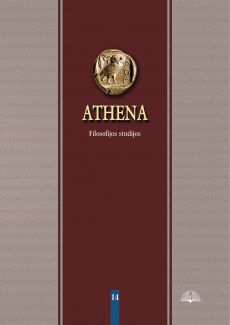MENININKĖ KAIP ANTROPOCENO PARTIZANĖ: AURELIJOS MAKNYTĖS IR CASTOR FIBER BENDRADARBIAVIMAS
THE ARTIST AS A PARTISAN OF THE ANTHROPOCENE: AURELIJA MAKNYTĖ’S COLLABORATION WITH CASTOR FIBER
Author(s): Agnė NarušytėSubject(s): Human Ecology, Political Ecology, Sociology of Culture, Environmental interactions, Sociology of Art
Published by: Lietuvos kultūros tyrimų
Keywords: ecological thinking; landscape; nature versus culture; cooperation with animals; indecisive (messianic) time; animal as creator;
Summary/Abstract: The 6th mass extinction of many species of wild animals that has already started prompts artists to take on a partisan approach in order to change people’s minds, because those in power are too indebted to the fossil fuel industry to stop the climate change. One of such partisans is the Lithuanian artist Aurelija Maknytė who explores the lives of beavers in marshes, rivers and melioration ditches for her on-going project The Landscape Partisan: Castor Fiber (started in 2013). She photographs the dams and lodges that beavers construct against the will of humans that keep destroying their work. By trying to access the point of view of other species unpolluted by human perception, the artist questions the traditional distinction between culture and nature, the ownership of landscape and the apparent lack of subjectivity in animals. She practices what Timothy Morton has defined as an ecological thinking and discovers the interconnectedness of cultural-natural ecosystems in the spirit of Bruno Latour. Since her project is never finished, Maknytė attempts to remain in the prolonged everyday documenting what appears to have survived the catastrophe, seeks to keep time in its indecisive state, while living into Giorgio Agamben’s messianic time, “the time it takes us to bring time to an end”.
Journal: Athena: filosofijos studijos
- Issue Year: 2019
- Issue No: 14
- Page Range: 234-253
- Page Count: 20
- Language: Lithuanian

